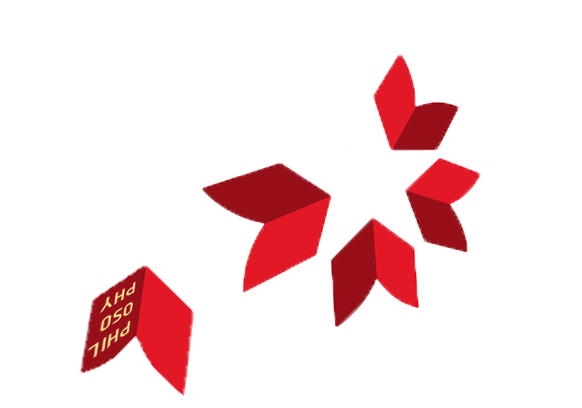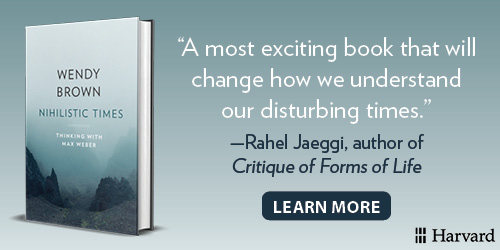Zero Philosophers Among New ACLS Fellows
The American Council of Learned Societies (ACLS) has a prestigious fellowship program to recognize “excellence in humanistic scholarship”. It recently announced its new class of fellows. Not one of them is a philosophy professor.

ACLS awarded over $3.8 million in funding across the 60 fellows comprising the new class. The funding provides six to twelve months of research leave for the fellows.
That no philosophers are among the ACLS fellows is not exactly surprising. Here are the number of philosophers who have been named ACLS Fellows over the previous 12 years:
2022: 1
2021: 4
2020: 2
2019: 1
2018: 1
2017: 3
2016: 4
2015: 3
2014: 3
2013: 6
2012: 4
2011: 0
Why do so few philosophers win these fellowships?
Back in 2019, American Philosophical Association (APA) Executive Director Amy Ferrer reported that only 5% of the ACLS fellowship applications were from philosophers. By contrast, 25% were from historians. She said, “Historians and philosophers win fellowships at the same rate, but WAY fewer philosophers are applying, so fewer win. Go apply, philosophers!”
There were nearly 1,200 applicants to the ACLS Fellowship Program in this round. If the 2019 proportions are still accurate, that would mean around 60 philosophers were among the applicants, and around 300 were historians. There are 11 historians among the 2023 ACLS Fellows. A similar win rate would have led to 2 philosophers winning these fellowships, not zero.
Perhaps the proportion of philosophers among the applicants has gone down. Or perhaps there have been other changes that explain philosophy’s lack of success here.



When you have something like 60 applications with a 1/30 probability each of being granted, 2 successes is the expectation, but 0, 1, 3, and 4 will all have non-trivial probabilities.
The probability of 0 successes is 15%, of 1 success is 29%, of 2 successes is 27%, of 3 successes is 16%, of 4 successes is 7%, of 5 successes is 2%, with relatively negligible probabilities of more successes.
That’s not too far off from the observed success rates since 2017, but eyeballing those numbers, it looks like there may well have been an elevated success rate from 2012 to 2017. It could be that more philosophers were applying then.
Let’s not blame the victims, here.
I hereby call on our colleagues in history to stop applying for so many fellowships.
On this topic it’s always worth recommending the discussion of philosophy as a “problem field” in Michele Lamont, How Professors Think, a book based on interviews with members of funding panels for five organizations, including the Humanities Fellowship Program of the ACLS. A lot of her discussion is about how the non-philosophers on these multidisciplinary panels can’t understand or themselves confidently evaluate research proposals from philosophers.
This is not surprising. They recently changed the rules (Covid-related), so that currently, only untenured scholars can apply. To apply, you don’t technically need a book project, but that’s the norm. Given that very few untenured philosophers write books, I would expect that the application numbers from philosophy have dropped a lot since the change was introduced. Writing books is the norm in other humanities, so there’s no reason to think that their application numbers have dropped.
I may be able to shed some light here, as I directed the ACLS Fellowship Programs some years back (2005-09). Things have changed, to be sure, though not appreciably in this regard, either relative to basic numbers or likely reasons. This was a matter of concern in my time there and we convened an informal workgroup to assess the dearth of awards in the ‘formal’ humanities—philosophy, linguistics, and music theory (each of which has at least one member society in ACLS). We identified a number of likely contributing reasons and subsequently tried some ameliorative measures—or at least tried to understand the challenges with greater precision:
· Scholars outside philosophy and those other fields have difficulty in evaluating proposals from those fields (per the Lamont book, as Tom Hurka notes). For what it’s worth, in my time I aggressively recruited philosophers and linguists to serve as reviewers, to try to ensure sufficient expertise was available. I also tried to rectify in particular what was then a surprising (to me, anyway) lack of analytically-trained philosophers among the reviewer base. That lack largely resulted from unfamiliarity with the discipline on the part of prior staff (no blame! there are dozens and dozens of humanities disciplines and subdisciplines with which to be familiar), and the prominence in general humanities circles of philosophers from other corners of the discipline (pragmatism, Continental, etc.). Such prominence in those circles is more diversely spread across the discipline nowadays, though that doesn’t necessarily translate into a robust philosopher reviewer base. Reviewing for competitions is super-intensive work and there probably still aren’t enough philosophers racing to sign up. To that end, I think this sign-up form from a couple of years back is still operable: ACLS Reviewer Volunteer Form. Volunteer for peer review!
· Scholars in philosophy and those other fields don’t apply as frequently as scholars outside those fields (Amy Ferrer’s point). The ACLS then and now makes great outreach efforts, both through the member societies and through direct appeal (mass emails, web presence, etc.). But, and speaking only about philosophy, I’m seeing that the culture of seeking external awards remains pretty limited in graduate schools (where such acculturation is routine in, e.g., the sciences) and, among faculty, more or less limited to R1s and the like. This can only change, I think, with concerted effort by graduate programs to build awareness and encourage external award-seeking as a disciplinary norm.
· Scholars in philosophy and those other fields don’t do a good job at explaining the relevance of their work to scholars outside their field—and too often don’t bother trying. This amounts to applicants not closely reading or taking seriously enough the application questions, which require an account of the project’s broad relevance for readers in diverse fields. We redesigned the application in response to this point, to call out the broad relevance question; I did not detect, however, that philosophers made much progress in addressing that question effectively. The new emphasis on public writing among philosophers should help here but that part of the application needs to be a real focal point for philosophy applicants.
· Relatedly: There is a structural challenge in the competition process for scholars in philosophy and those other fields. The first round of review calls upon reviewers from within the discipline, and the second round goes to an interdisciplinary panel. To write strategically for this process, then, requires making one’s project both interesting enough to merit support from the specialist reviewers (philosophers, etc.) as well as comprehensible enough to even have a chance at winning over the interdisciplinary panel. Historians have an automatic advantage here as their craft consists in telling stories that work, optimally, for specialists and general readerships alike. Scholars of literature also do well with this, particularly if they are writing on historical topics (again, the capacity to relate historical narrative is helpful). Among philosophers, we saw that those doing history of philosophy tend to go further than others. This challenge is not unique to ACLS competitions, of course, and philosophers interested in competing for such awards would do well to understand the challenge.
· Scholarship in philosophy and those other fields is oriented around articles rather than books, and book projects have greater appeal to interdisciplinary review panels (related to Julia Staffel’s point). Our workgroup back in the day didn’t think this was a major issue in the low numbers and, in particular, not likely disadvantaging philosophers who made it to the interdisciplinary review. (I did see some reviewers at that level initially disparaging article-centered projects but they were quickly made aware of the disciplinary differences.) If anything, the thinking was (and remains plausible) that the framework of articles-as-coin-of-the-realm drives a certain avoidance of external award seeking; in other words, potential applicants in philosophy, etc. don’t bother applying because they don’t think one or two articles merits a year’s fellowship.
Much has changed at ACLS since I was there and the organization does even more wonderful work now than it did then, and I thought it was pretty damn wonderful at the time. As for philosophy, one thing that has changed over the last decade and a half is the tremendous growth in public philosophy and social justice-oriented research in philosophy. This trend—good in its own right—also positions philosophy as a discipline to improve results in competitions like ACLS. Such topics are simply more ready-to-hand for reviewers. But, yeah, philosophers need to apply.
Saul, this is all very helpful. The advice that part of the problem would be resolved if more people just apply is not that easy to follow. The reputation that the ACLS is a low probability fellowship for philosophers and the amount of time I know it takes for someone to put together an application like this means its an uphill battle to get a large amount of applicants because of the opportunity costs.
It might be helpful for the ACLS, like with the NHC fellowships, to earmark ONE per year to a philosopher, so that at least people can be guaranteed to have a non-zero chance.
As someone who is part of the movement to increase publicly accessible scholarship in philosophy, I do hope you’re right that this kind of increase will help, but I’m afraid that by sheer numbers, you’re likely right that the work that would be competitive in the second round would not be in the first, and vice versa.
Saul’s points are pretty accurate to my knowledge of ACLS’s current efforts and why philosophers may struggle in ACLS (and other similar) fellowship competitions. I have had many conversations with ACLS staff about these issues over the years. I know they are aware of the concerns and work very hard to ensure philosophy proposals get a fair shot.
Philosophers need to apply more (I believe the proportion of philosophers applying did indeed go down this year), and it’s incredibly important that philosophers take seriously the need to explain their project’s importance in ways that scholars across fields will understand and appreciate. In August 2022, ACLS staff and philosophers who have served as reviewers did an APA Live online event that offered guidance on the ACLS fellowship process and how to approach the application. The recording is available at the APA On Demand video library and I recommend it for anyone considering applying.
And philosophers also need to serve as reviewers so that philosophers applying have more advocates in the selection process. ACLS also looks to reviewers for feedback on the review process, and have made changes to address concerns (as Saul pointed out). So, again, volunteer as a reviewer!
The low number of fellowships going to philosophers is a longstanding concern, and I’ll continue to engage with ACLS staff about what we all—the APA, ACLS, philosophers in general—can do to make sure that excellent philosophical work gets the recognition and support it deserves in these competitions.